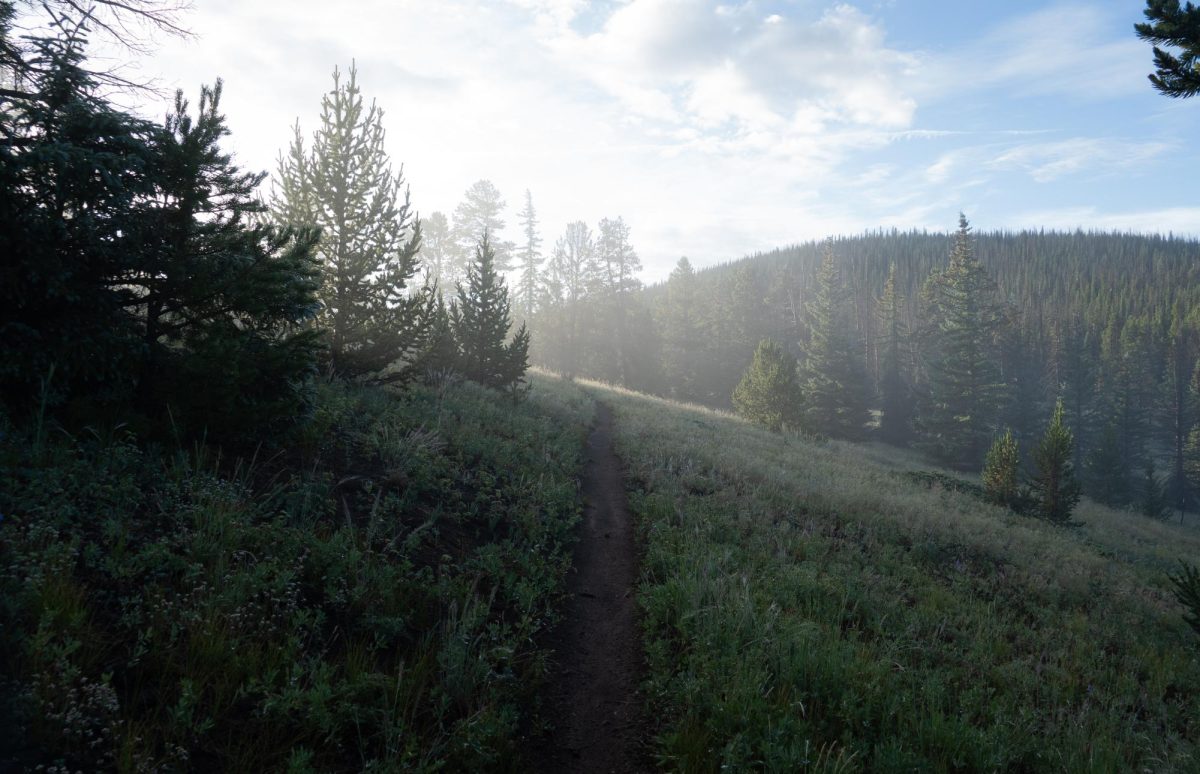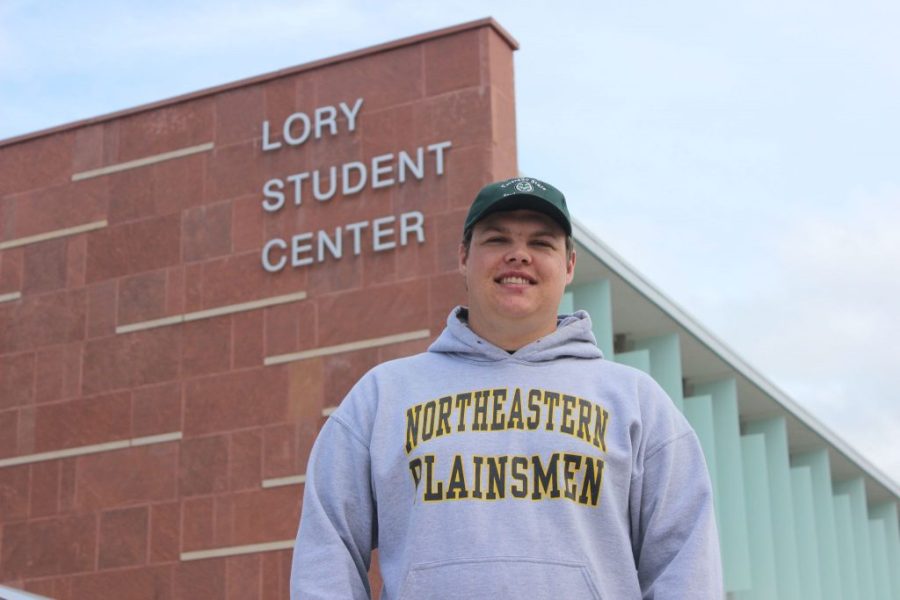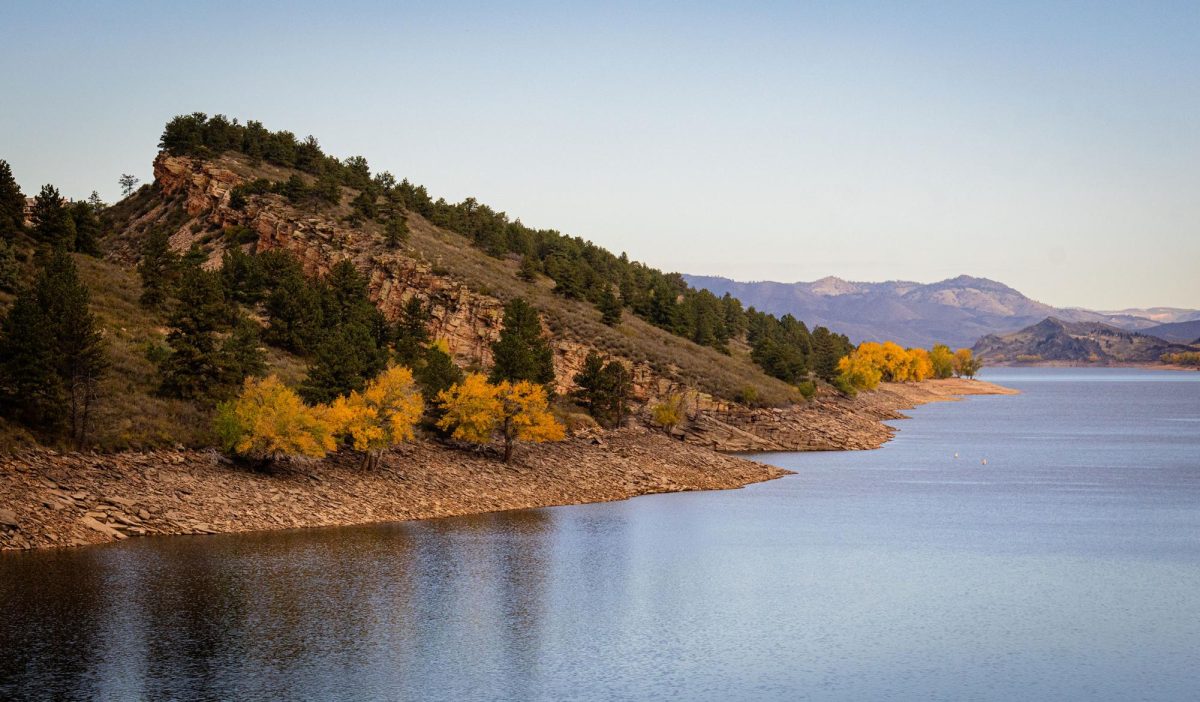When people think of college, they often imagine massive lectures, rowdy football games and a sprawling campus. What they may not realize is that college life can also mean a rural school, small class sizes and a more intimate atmosphere.
Many students choose to attend a two-year junior or community college before transferring to Colorado State University.
According to CSU’s Institutional Profile, there were about 1,600 new transfer students for the 2015-2016 academic year.
Animal science junior Tyler Haus transferred to CSU in 2015 from Northeastern Junior College located in Sterling, Colorado. There are several different reasons why students choose to attend NJC before coming to CSU.
“My ACT score was low, for one,” Haus said. “But then, at the same time, I saw that it was the No. 1 junior college. They have a great agriculture program, so that’s why I went there first.”

For crop and soil science major Tim Volberding, attending NJC meant he could be closer to his hometown so he could help out on his family’s farm. In his case, junior college served as a transition experience.
“Going from a small country school to a big school like CSU, I would’ve been over my head a little bit,” Volberding said. “Being able to go to a school like NJC allowed me to just get my feet wet. I made a lot of friends and just got to experience college for a couple years at a smaller college.”
The smaller class sizes at junior colleges offer additional support for students.
“If you come from a small, rural, agricultural town or any small town, it’s definitely a good transition from a smaller high school,” Haus said. “The thing there is that the professors will go out of their way to meet up with you and build that bond, whereas here at CSU, you have to make the first step.”
There are also financial benefits to attending junior college first. Annual tuition for Colorado residents at NJC is $11,570. In comparison, in-state tuition at CSU is almost double at $21,525.
Students who transfer from junior or community colleges also face many challenges.
“Going from the smaller class size to the bigger one was definitely overwhelming at first,” Haus said.
Transfer students may also struggle with integrating into campus and feeling connected to the University.
“You kind of seem like an outsider, because sometimes you don’t feel you’re as important as somebody who went from a freshman all the way to a senior at CSU,” Volberding said. “I did feel a little isolated at first, but it was nice having friends that were coming from NJC and I met people in clubs.”
“You kind of seem like an outsider, because sometimes you don’t feel you’re as important as somebody who went from a freshman all the way to a senior at CSU.” — Tim Volberding, crop and soil science major
There is also a bit of a small social stigma associated with attending a junior or community college.
Volberding said some people have the mindset that students who came from NJC aren’t as good, but that this preconception dissipated after they got to know him.
“I don’t regret going there first,” Haus said. “Even though sometimes you might get a little scoff for going to a junior college before.”
Despite the various challenges, NJC transfer students gain a lot of unique experiences.
“I love CSU, but it was just a great experience being able to go to a two-year, and then being able to come up here,” Volberding said. “If I had to do it again, I would definitely go to NJC first.”
Both NJC and CSU have programs in place to help students make the transition.
“I didn’t know how to sign up for classes. I also didn’t know my advisor, but during the summer, they had orientations, so that helped,” Volberding said. “They had a program where they would bring all the ag (agriculture) kids up at once and then CSU had a specific day where they sit down and help us sign up for classes.”
“I don’t regret going there first. Even though sometimes you might get a little scoff for going to a junior college before.” — Tyler Haus, animal science junior
Additionally, NJC transfer students come to CSU with a completed associate degree.
“If anything, you have an advantage coming from junior college already having your associate (degree),” Haus said. “What’s cool is that we’re already college graduates when we come here.”
Haus offers some advice to NJC students who will transfer to CSU in the future.
“You have to be willing to work hard,” Haus said. “(At NJC), it’s a little more laid-back. Kids can get away with partying hard and still making it through. Whereas here, it’s a push and if you’re not dedicated to it, you’re not going to get through like you did at NJC, that’s for sure.”
Volberding also had some words of wisdom for future transfer students.
“If they’re involved at NJC, just keep being involved and don’t give up,” Volberding said.
For Haus, attending CSU was always the end goal.
“If you asked anybody at NJC when I was there, they always thought I was a recruiter for CSU because I always wore CSU hats and shirts,” Haus said. “I always wore that stuff to constantly remind me that’s where I wanted to be.”


































Andria Crowell • Apr 27, 2016 at 1:03 am
Loved my 2yrs at NJC. I transfered to CSU then ended up in southern California. I earned my BS is Food Marketing and Ag business from Cal Poly Pomona in 2008. I had to do alot of footwork in order to transfer all my credits. Even though it had been 5/6 years since I had attended NJC my professors were willing to send emails and help in anyway possible to help me get my credits transformered. NJC’s programs (all of Colorado’s) are so good that Ag Economics 100 is a 400 level class at Cal Poly. Same book even. I loved everything about my time at NJC and would recommend ut to everyone.